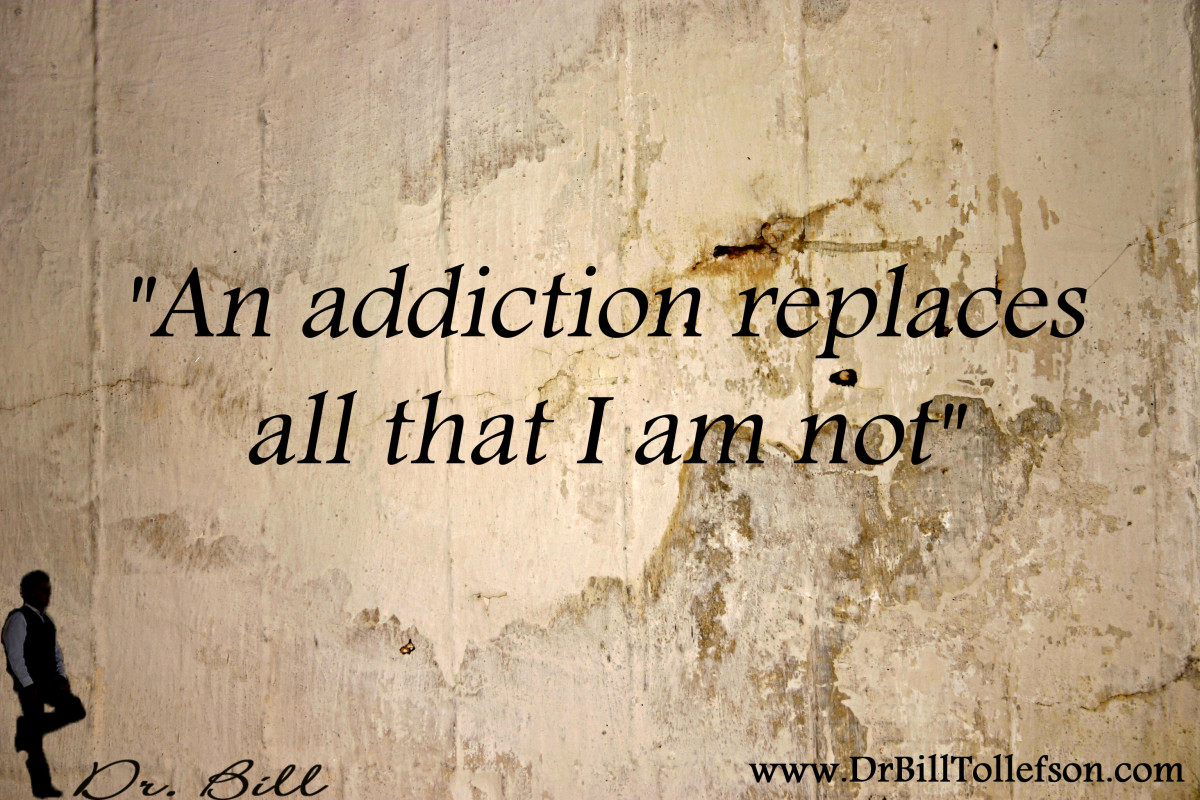- HubPages»
- Health»
- Mental Health»
- Addiction
Fear of Missing Out Phobia: The Addiction and How to Overcome the Fear
What is the Fear of Missing Out Phobia?
The fear of missing out phobia is both a phobia and an addition. You may suffer from it and not even realize it. So, what exactly is the "fear of missing out" and how can you overcome the fear?
FOMO: A Concise Definition
Often shortened to FOMO, the fear of missing out is the fear of missing out on something more interesting or more exciting than what you are doing right now. There is a fear that something might be happening while you are busy in your real life. Unfortunately, FOMO is a technology-related trend that may wreak havoc on your personal and professional life.
The Fear of Missing Out: Are You Already Being Affected?

Warning Signs of FOMO or Technology Addiction
The fear of missing out is also about the missing potential opportunities to make new online connections. The key word is "potential"; you will not know if you can create a new connection until you check your latest email message or the electronic feed of your Twitter account.
You do not know if you have missed anything until you check your cell phone, computer, or other electronic device. Five minutes after you do check, you will feel the need to check the device again to see if anything has been updated. This is a warning sign of FOMO or technology addiction.
A few ways that FOMO appears in daily lives include:
- Texting while sitting in your car at the red light of an intersection
- Checking your Twitter stream while out for coffee with a friend
- Answering your cell phone when you are eating dinner with family members
The fear of missing out phobia creates problems for those who suffer from the addiction and phobia. The way the technology addiction interferes with your life is complex, as explained below.
FOMO and Social Media Networks

Fear of Missing Out: The Warning Signs
Fear of missing out creates problems in your personal and professional life in several ways. For example, you may lose real-world connections; these are people who you have relationships with offline.
1. You Lose Real-Life Connections
Your real-life connections may suffer in response to your perceived need to continuously check your smartphone or other electronic devices. Let's say that you are out on a date. You check your Google+ profile on your smartphone while you are out, looking to see if anyone has commented on your latest post.
If your date does not have FOMO, they may consider your interest in your phone rather than in his or her conversation to be a rude gesture. As a consequence, he or she doesn't return your next phone call. You just lost a potential real-life connection - and you lost that relationship to the addiction called the fear of missing out.
Online Relationships and FOMO

Read about Tech Addiction
More Warning Signs of the Addiction
2. Your Connections are Limited to Online Ones
As explained above, you sacrifice your daily real life connections for online ones, on social media networks and other virtual platforms. Your online friends is likely largely composed of people you have never (and will never meet) in person. The relationships are electronically based on Twitter, Facebook, Google+ and perhaps a slew of other social media platforms. A significant amount of time is dedicated to checking in on the networks due to anxieties about missing out on what is happening in the electronic circles. As a result, your relationships with family and friends suffer due to lack of attention.
As well, consider that a lot of people on social networks do not post their true, personal information. They also censor what they do post about themselves given privacy concerns on the Internet.
Even if they are honest about their marital statuses, they are not likely to provide you with their flaws. You may not learn that they have been divorced or belong to certain groups that go against your moral values. Although these characteristics may not change your friendships with these people, the fact remains that you have not learned their entire identities. The connections that you seek to acquire are often not as in-depth as people you would meet face-to-face.
Do You Suffer From FOMO?
Do You Suffer From FOMO?
The Emotional Toll of FOMO

Two More Warning Signs of the Fear of Missing Out
3. Feeling Overwhelmed
FOMO may also lead to feeling overwhelmed. As you add more followers to Twitter and join more Facebook groups, you make more connections. The downside is that you receive more responses to your online posts. Your groups of connections increase and so does your time devoted to the networks.
Your phobia skyrockets as you desire to keep up with the latest activities of those people and not feel left out of the mix. The addiction is eating up your time that could instead be devoted to time with family and friends, as well as getting household tasks done.
Workplace Issues
Also, your work life aside from the social media world suffers. For example, your client is kept waiting for an appointment with you in the lobby as you want to ensure you are up to date on your responses to any Twitter messages you received in the last ten minutes.
Your time is not fully devoted to your work, which means minutes each day of inactivity add up to lost working hours over the week. If you operate your own business, you are potentially missing out on a sizable amount of income.
How To Eliminate The Fear Of Missing Out
There are solutions or ways to eliminate your fear of missing out. As with any form of addiction, start by admitting the issue at hand. Be conscious that you do indeed have the fear and phobia; look at yourself objectively to see if you do suffer. If FOMO is present in your life, do not turn a blind eye.
Take Breaks
Try signing out of social media applications for a set amount of time. Doing so will allow you more time to focus on work, household tasks, and activities with family and friends. Write down the specific times to log out if you need to, as a way to force yourself to stay on track.
Let other people in your social media networks know when you are busy to help lower your feelings of being overwhelmed. There will be fewer expectations on you to be on the applications as often. Your followers will likely understand as all lives get busy and they will appreciate your honesty. You let them know that your absences are not personal and are instead about prioritization.
Allow Scheduled Breaks: Break from Technology Addiction

Another Tip: Maintain Perspective on the Addiction
Step back and try to gain perspective on the addiction. Monitor your progress. Are you continuing to take those breaks from being online?
Recognize that your network will still be accessible by mobile device or by computer when you return an hour later. The world will not end in the meantime. Your buddy will understand if it takes you an extra hour or another day to read his or her newest article. Be honest with yourself if you have fear of missing out and that way you can work to reduce the addiction.
FOMO Addiction
FOMO, or the fear of missing out, is a rising trend in communities around the world that are becoming increasingly dependent on technology as a way to communicate with others. Technology is associated with feeling connected to other people, even if you have never met them face to face.
Solutions exist to help alleviate the addiction, including taking breaks from online activities and re-prioritizing daily tasks. Computer addictions are likely to continue to spread as new types of electronics and new social media applications are created on a regular basis. Curb FOMO through personal techniques to feel less overwhelmed and create a happier sense of self.
Curb The Addiction

Related Addiction Reading
- Cell Phone Addiction: Symptoms and Methods of Treatment
Cell phones are often glued to the hands of people or available by bluetooth. In many ways, cell phones are addictive. Find out more about the addiction and ways to treat it.









